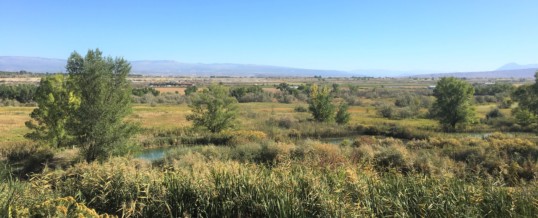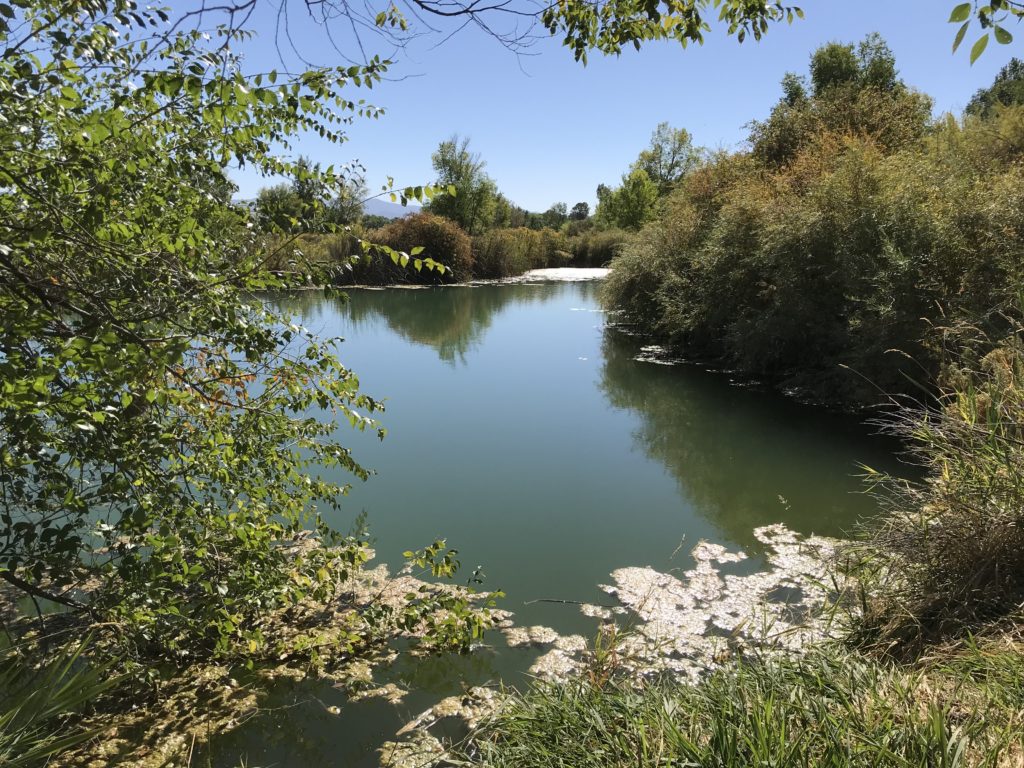
John Welfelt moves through a dense patch of willows and I lose sight of him for a moment. “Keep track of how much water you see!” he yells back with a sense of well-deserved pride. There’s water everywhere on his property; spring-fed reservoirs form a loose grid pattern that percolate water down to a wetland near the Uncompahgre River.
Rabbitbrush, three-leaf sumac, cattails and milkweed stand tall and thick against the shoreline of the ponds. Brush them aside and you see crystal clear water that sustains plenty of life—rainbow trout glide under the duckweed while marsh wrens, swallows and yellow-rumped warblers fly overhead.
There is no wondering why all these animals thrive on John’s property: he and his business partner, Steven Lewis, have worked diligently to make this land a haven for wildlife.
For the past couple years, they have worked with the North Delta Irrigation Company, Bureau of Reclamation, and the Uncompahgre Valley Water User’s Association to implement habitat replacement projects on their property. Together, they are working to plant nearly 700 native shrubs and trees on John’s land over the next five years.
This friendly collaboration has revealed an opportunity with vast potential, and Colorado West Land Trust is prepared to help in Delta and Mesa counties. To reduce salinity and protect water quality in the Colorado River system, ditch companies can apply for Colorado River Basin Salinity Program funding to pipe open ditches and improve irrigation infrastructure. Unfortunately, doing so often results in lost wildlife habitat, so participating ditch companies are required to offset these losses with habitat replacement projects. This is where the Land Trust comes in.
Colorado West Land Trust aims to play the unique role of matchmaker, linking ditch companies seeking to implement habitat replacement projects with willing landowners and public land managers looking to enhance wildlife habitat on conserved property. It’s a win-win solution—conserved private land assures that ditch companies can implement projects in an efficient and secure manner, and those looking to enhance wildlife habitat on their property are afforded the means to do so.
“I think it’s an opportunity to see a lot of these habitats get better, and [Colorado West Land Trust] has been a great partner in this,” says John. “We’re going to lose more habitat to more people, and so I think it’s important to improve all the habitat we can, especially in a desert area.”

FEB
2019
